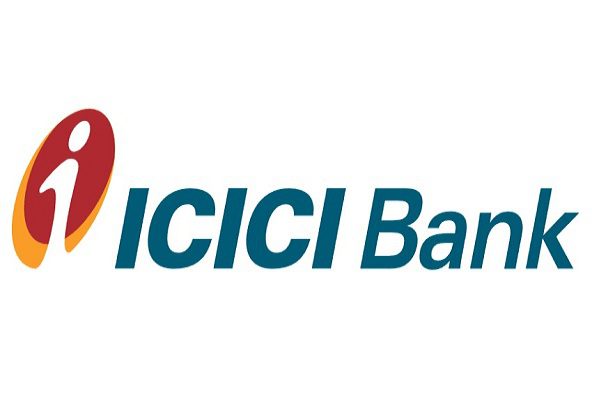Let’s face it, money matters can be a real headache. And when it comes to deciding between investing and repaying, things can get even more confusing. Should you put your hard-earned cash into stocks and hope for great returns? Or should you just pay off that never-ending student loan and save yourself the stress? Well, my friend, I’m here to help you navigate this dilemma and figure out what’s best for your wallet. Buckle up, because we’re about to dive into the world of financial decisions!
The Dilemma of Investing vs Repaying
So, you’re torn between investing and repaying? Ah, the age-old dilemma of what to do with your hard-earned money. It’s like being in the middle of a dessert buffet and having to choose between the decadent chocolate cake and the refreshing fruit salad. Decisions, decisions. Should you invest your money in hopes of multiplying it or should you use it to pay off those pesky debts? Let’s dive into this dilemma and uncover the pros and cons of both options.
Understanding the dilemma
Investing is like dipping your toes into the unpredictable ocean of financial markets. You have the chance to make your money grow, but boy, can it get choppy out there. On the other hand, repaying your debts is like taking a step towards freedom. But hey, who likes tying themselves to a ball and chain anyway?
Pros of investing:
Investing can be as thrilling as riding a rollercoaster. The potential for high returns makes your heart race, just like the adrenaline rush you get when the rollercoaster takes a sudden drop. Plus, with smart investment choices, you can build a diversified portfolio and let that money work for you. Cha-ching!
Cons of investing:
But hold your horses, cowboy. Investing comes with its fair share of risks. The financial markets can be as temperamental as a cat that just wants to be left alone. If you’re not careful, you could lose your hard-earned money faster than you can say “I wish I had listened to my financial advisor
Pros of repaying:
Now, let’s talk about the joy of seeing those debts dwindle away. Imagine a weight being lifted off your shoulders, freeing you from the constant nagging of creditors. By repaying your debts, you’re one step closer to financial tranquility. Ah, bliss!
Cons of repaying:
But before you start celebrating, let’s not forget the opportunity cost. By focusing on repaying debts, you might be missing out on potential investment returns. It’s like resisting the urge to buy that trendy new gadget, only to find out it’s doubled in price by the time you finally give in. FOMO is real, my friend.
So, there you have it—the ongoing battle between investing and repaying. It’s like choosing between a rollercoaster ride and a tranquil stroll in the park. Both have their merits and disadvantages. But fear not! We’ll explore some factors to consider in the next section to make this decision a little less daunting. Stay tuned!
Factors to Consider
So you’re facing the age-old dilemma of deciding whether to invest or repay your debts. Ah, the joys of being an adult! Well, fear not, my confused friend. I’m here to help you navigate through this financial conundrum. Let’s dive into the factors you should consider before making your decision.
First on the list is interest rates. How much are you currently paying on your debts? Are they eating away at your soul every month? Or are they relatively manageable? If the interest rates on your debts are sky-high, you might want to prioritize repaying them. After all, saving money on interest payments is always a good idea.
Next up is your risk tolerance. Are you comfortable with taking risks or do you break into a cold sweat at the mere thought of losing money? If you’re a risk-averse individual, it might be better to focus on repaying your debts. Sure, investments have the potential for higher returns, but they also come with their fair share of risks.
Time horizon is another crucial factor. How soon do you need the money you’re contemplating investing? If you have immediate financial goals, such as buying a house or starting a family, it may be wise to prioritize saving and repaying your debts. Investments often require a longer time horizon to generate substantial returns.
Lastly, let’s take a look at your current financial situation. Are you drowning in debt and struggling to make ends meet? If so, it might be prudent to focus on repaying your debts first and improve your financial stability. On the other hand, if you have surplus cash flow and can comfortably meet all your financial obligations, investing may be a viable option.
Remember, there’s no one-size-fits-all solution. Your decision should be based on your individual circumstances and financial goals. It’s essential to strike a balance between your short-term needs and long-term aspirations. Now that we’ve covered these factors, you’re one step closer to making the best financial decision for yourself.
Hang in there, my friend! We’re almost done with this financial rollercoaster. In the next section, we’ll explore some real-life case studies to shed more light on the invest-or-repay dilemma. Stay tuned!
Invest or Repay: Case Studies
Let’s dive into the intriguing world of case studies and see how real-life individuals have made their financial decisions. *Drumroll, please!* Here are two captivating tales that will leave you on the edge of your seat.
In case study 1, we have Anna, the go-getter investor. She’s got a keen eye for opportunity and a heart full of courage. Anna embarked on a thrilling investment journey, where she dabbled in stocks, mutual funds, and even tried her hand at real estate. Her goal? To grow her wealth and make her dreams come true.
On the other hand, we have John, the relentless debt conqueror. He was determined to break free from the shackles of debt and reclaim his financial freedom. With a laser focus, he chipped away at his student loans, credit card debts, and mortgage like a superhero in disguise. John’s persistence paid off as he slowly but steadily eliminated his financial burdens.
These case studies demonstrate that everyone’s financial journey is unique. Anna and John took different paths, each suited to their personal circumstances and aspirations. *No one-size-fits-all approach here, folks!*
Before we draw any conclusions, let’s remember that life is a rollercoaster filled with unexpected twists and turns. Both investing and repaying have their merits and downsides. The right choice depends on various factors like interest rates, risk tolerance, time horizon, and of course, your current financial situation.
Financial Goals and Priorities
So, you’re at that pivotal point in your financial journey where you need to decide whether to invest your hard-earned money or use it to repay your debts. Oh boy, what a dilemma! But fear not, because I’m here to guide you through this mind-boggling decision-making process.
Let’s start by taking a look at your financial goals and priorities. In the short-term, you might have dreams of buying a new car, going on a vacation, or perhaps even saving up for a down payment on a house. On the other hand, your long-term goals could include things like planning for retirement or saving up for your kids’ education.
But hold on a second! While it’s important to have these goals and aspirations, you also need to balance them with your current obligations. After all, bills won’t pay themselves, right? So, it’s crucial to prioritize your financial responsibilities and ensure that you meet your basic needs first.
Imagine if you invest all your money and then find yourself struggling to make ends meet. That would be a nightmare, wouldn’t it? So, think about how you can meet your day-to-day financial obligations while also working towards achieving your future goals.
Now, I know what you’re thinking – “This sounds like a lot to consider!” Well, you’re absolutely right! Making financial decisions can be overwhelming, but it’s important to assess your risk tolerance, compare potential returns, evaluate your emotional peace of mind, and most importantly, consider your individual circumstances.
So, my friend, as you stand at the crossroads of investing and repaying, remember to weigh your short-term and long-term goals against your current financial obligations. There’s no one-size-fits-all answer, so take the time to understand your own priorities and make the best decision for yourself. Trust me, you’ve got this!
Making the Best Decision
When it comes to making financial decisions, it can feel like you’re stranded in a maze of choices, and there’s no GPS to guide you. Choosing whether to invest or repay your debts can be one such dilemma. So, let’s take a closer look at some key points to consider before making a decision.
Assessing the risk is crucial. Investing may offer higher returns, but it also comes with its fair share of uncertainty. Are you ready to ride the rollercoaster of the financial market? Or would you prefer the stability of repaying your debts? Take a moment to reflect on your risk tolerance.
Next up, let’s talk about comparing potential returns. Investing has the potential to grow your wealth in ways unimaginable, like hitting the jackpot at a unicorn-themed casino. On the other hand, paying off debts will give you the satisfaction of being debt-free. So, ask yourself, how important are those extra zeroes in your bank account?
Now, let’s delve into evaluating emotional peace of mind. Investing can sometimes feel like you’re a contestant on a reality TV show, always wondering what surprises await you. Repaying your debts, on the other hand, can provide a sense of relief and freedom from financial burdens. How much are you willing to sacrifice for some much-needed peace of mind?
Lastly, let’s consider individual circumstances. We all have unique financial situations that require personalized solutions. Are you in a stable job with a steady income, or are you just one step away from joining the circus? Are you planning to buy a house or travel around the world like a nomadic free spirit? Personalize your decision based on your current circumstances and future goals.
In the end, there’s no one-size-fits-all answer to the invest or repay dilemma. It requires careful consideration of various factors, including risk, potential returns, emotional well-being, and individual circumstances. So, put on your financial thinking cap, weigh your options, and make the best decision that suits your quirky self!














